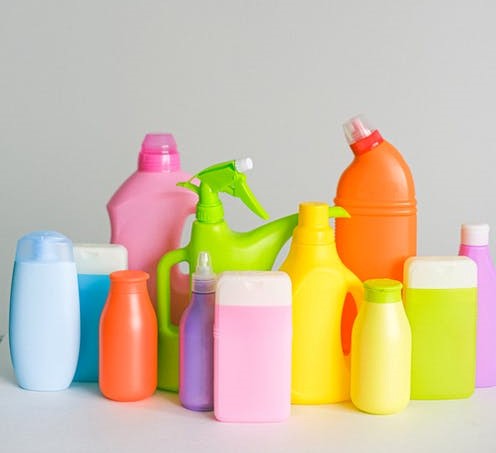Childcare providers deserve a daily round of applause. You take care of and teach our children, and the effort you put in often goes unnoticed. We at DC Insurance understand what an amazing job providers are doing each day; however, even the best providers occasionally get caught at the wrong time when their licensing analyst shows up. Whether it’s forgetting to update a child’s file or being a little behind on making copies of employee vaccination records, great providers occasionally receive licensing violations. And one violation that we see very commonly and that can be very easy to slip up on, is not properly storing cleaning supplies and other poisonous substances. Below are a few ways to avoid one of the most common licensing violations.
- Have locks in place.
Title 22 states that poisons and cleaning compounds must be stored where they are inaccessible to children. Many providers have misunderstood this rule, believing that cleaning chemicals can be stored on high shelves where children can’t reach them or in a room that children don’t access. Unfortunately, the licensing regulation is a bit stricter than that. The regulation goes on to say that poisons must be locked. This means that any cleaning chemical that could pose a danger to a child must be stored either in a separate room that remains locked, or in a cabinet with a lock on it. We recommend a combination lock or a lock that can only be opened with a key, as older children can often unlock simpler locks. This not only keeps the children in your care safe, but also ensures that you don’t receive an unexpected citation when your licensing analyst arrives.
- Try to clean during off hours.
Picture this. You’re cleaning up a mess made by a sick child. As you’re sanitizing and wiping down the area, your licensing analyst comes to the door. You step away from the sanitizer to let them in, and they immediately issue you a citation for having cleaning chemicals accessible to children. You try to explain that you were just in the middle of cleaning, but they just won’t listen to you. While this may sound far-fetched, we’ve seen this exact scenario happen to a number of providers.
While it may not always be feasible to only clean during off hours, the more you can try to refrain from using cleaning chemicals during business hours, the better. If you do have to clean in the middle of the work day, be sure to always keep the cleaning chemical in your hand. The second you set it down, you risk a child getting their hands on it, in addition to the risk of a licensing citation.
- Make sure cleaning chemicals are clearly labeled.
This may seem obvious, but providers fail to clearly label poisons more often than you may think. Many cleaners come in a concentrated form and must be mixed with water; this generally means that you must mix the compound in a separate bottle. If that bottle is not immediately labeled and locked away, the consequences can be dire. Of course, improper labeling increases the risk of licensing violations, but there have also been terrible instances of child care centers mixing these bottles up with things like water. By always clearly labeling your bottles, you are protecting yourself, your business, and the children in your care.
- Start using a non-toxic cleaner.
One of the easiest ways to avoid being cited for improperly storing poisonous chemicals is to simply stop using them! There are more and more nontoxic cleaning supplies on the market today, and finding one that isn’t harmful to children can be a huge relief for busy childcare providers. We love this Force of Nature product because it’s an appliance that creates a cleaner and EPA registered disinfectant that kills 99.9% of germs from just salt, water, and vinegar. It’s just as effective as bleach but so gentle it doesn’t require rinsing. Another thing we love is that it’s safer for you too! Research shows daily exposure to bleach dramatically increases your risk of Chronic Obstructive Pulmonary Disease (COPD) and can damage your lungs as much as smoking a pack of cigarettes a day. Considering how much cleaning goes into a day of running a child care, having nontoxic products on hand can make life so much easier and give you one less thing to worry about.
If you’ve found any of these tips helpful, be sure to let us know! And, as always, DC Insurance is here to answer any additional questions you may have and to help you keep your business safe so you can focus on being an amazing child care provider.


